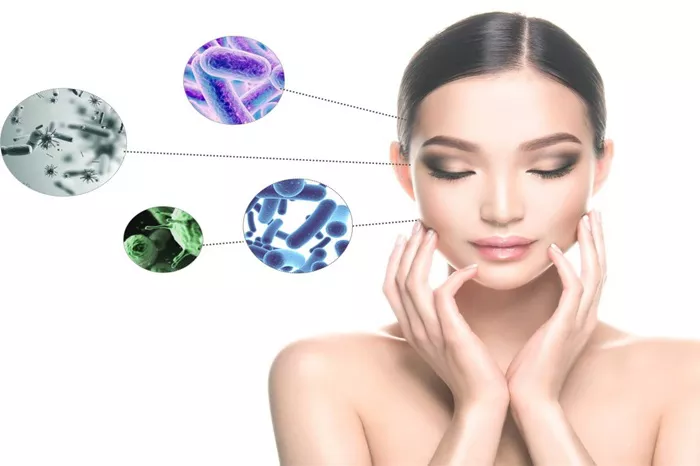Recent discussions on skin biology have unveiled a plethora of fascinating facts. It’s been revealed that skin is not just a protective layer but a bustling ecosystem teeming with life. Beyond its role in mere protection, it hosts a complex community of microbes that contribute significantly to its health.
Contrary to common belief, the skin is not sterile; rather, it harbors a diverse array of bacteria. Recent studies have overturned earlier assumptions, indicating that the skin hosts a bacterial density second only to the gut. Among the myriad inhabitants, one commonly found microbe is demodex folliculorum, which resides in the pores, feeding on natural oils and, intriguingly, mating on the face during nocturnal hours.
Dermatologists like Dr. Shreya Andric emphasize the importance of understanding these microorganisms, particularly noting their association with conditions like rosacea. According to Dr. Andric, imbalances in the skin microbiome can exacerbate such dermatological issues, underscoring the microbiome’s pivotal role in skin health.
Dr. Rebecka Williams, a microbiome scientist, elaborates on the significance of these microbial communities, likening them to a supporting organ vital for daily bodily functions. Beyond mere protection, the microbiome aids in fighting infections, supporting immune responses, and regulating inflammation. When this delicate balance is disrupted—known as dysbiosis—it can lead to various skin ailments, including dryness, eczema, and acne.
Maintaining a healthy skin microbiome, therefore, becomes crucial. Practices like ‘skinimalism,’ which advocates for minimal product use to preserve microbial diversity, are gaining traction. Additionally, the rise of probiotic skincare products aims to restore this balance by reintroducing beneficial bacteria, counteracting environmental stressors like pollution and UV exposure.
The concept of ‘tribiotic’ skincare, incorporating prebiotics, probiotics, and postbiotics, has emerged as a comprehensive approach to nourish and support the skin microbiome. These components promote the production of essential fatty acids and ceramides, vital for maintaining skin hydration and resilience.
Research is also exploring the interconnectedness of gut health and skin microbiome, highlighting how diet influences microbial diversity and, consequently, skin health. As experts delve deeper into these interrelations, the demand for microbiome-friendly products continues to grow, reflecting a paradigm shift towards nurturing rather than sterilizing the skin.
In conclusion, the evolving field of skin microbiome research underscores its pivotal role in skincare. As Dr. Williams affirms, microbiome-friendly practices are not just a trend but a fundamental aspect of maintaining skin health and overall well-being.
Related topics:
Gaza Children Suffer Skin Infections Amid War Conditions
Exotropin: Pioneering Skincare with Scientific Rigor and Innovation
Rejuvenating Skincare: 111SKIN’s Rose Gold Radiance Booster Shines


